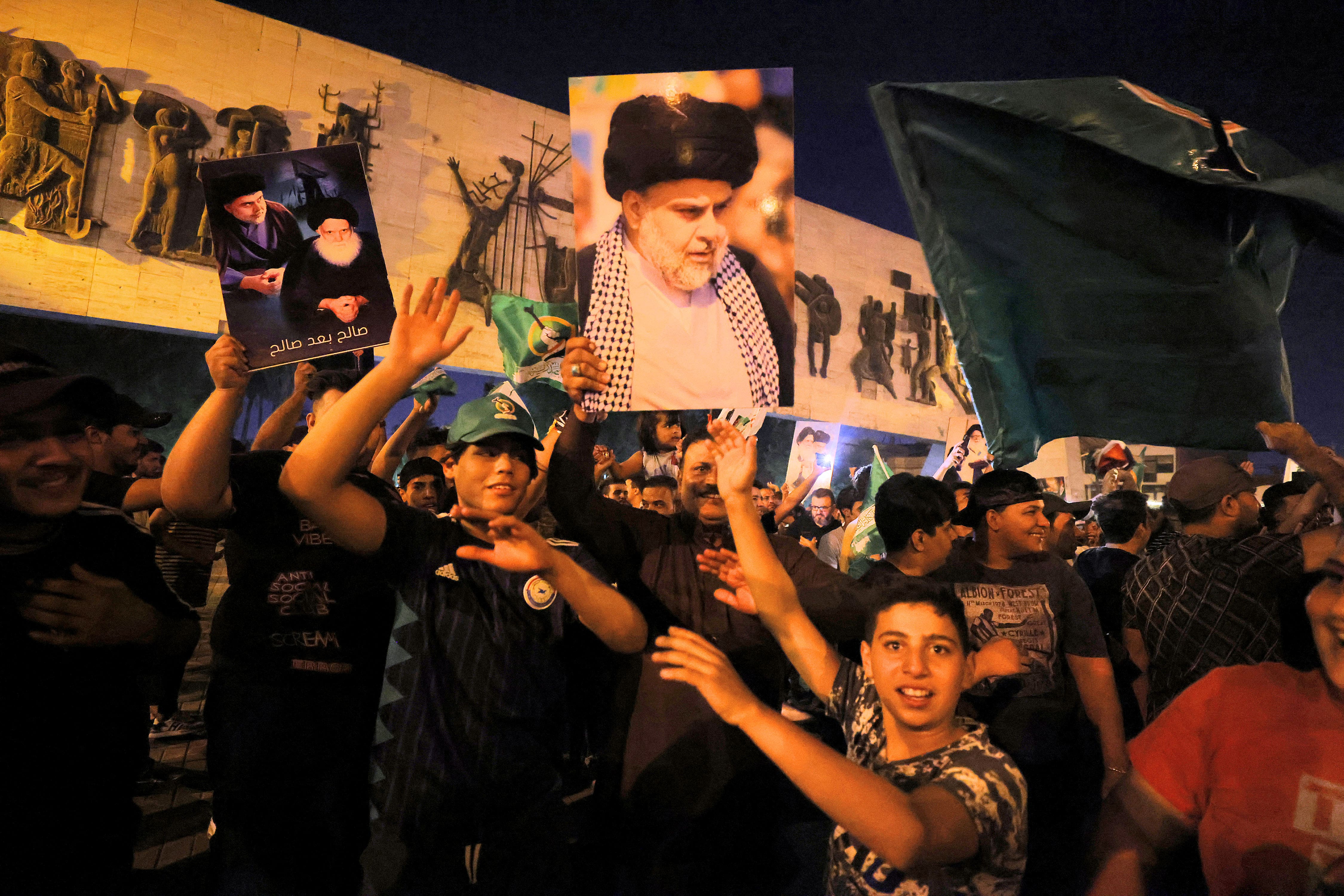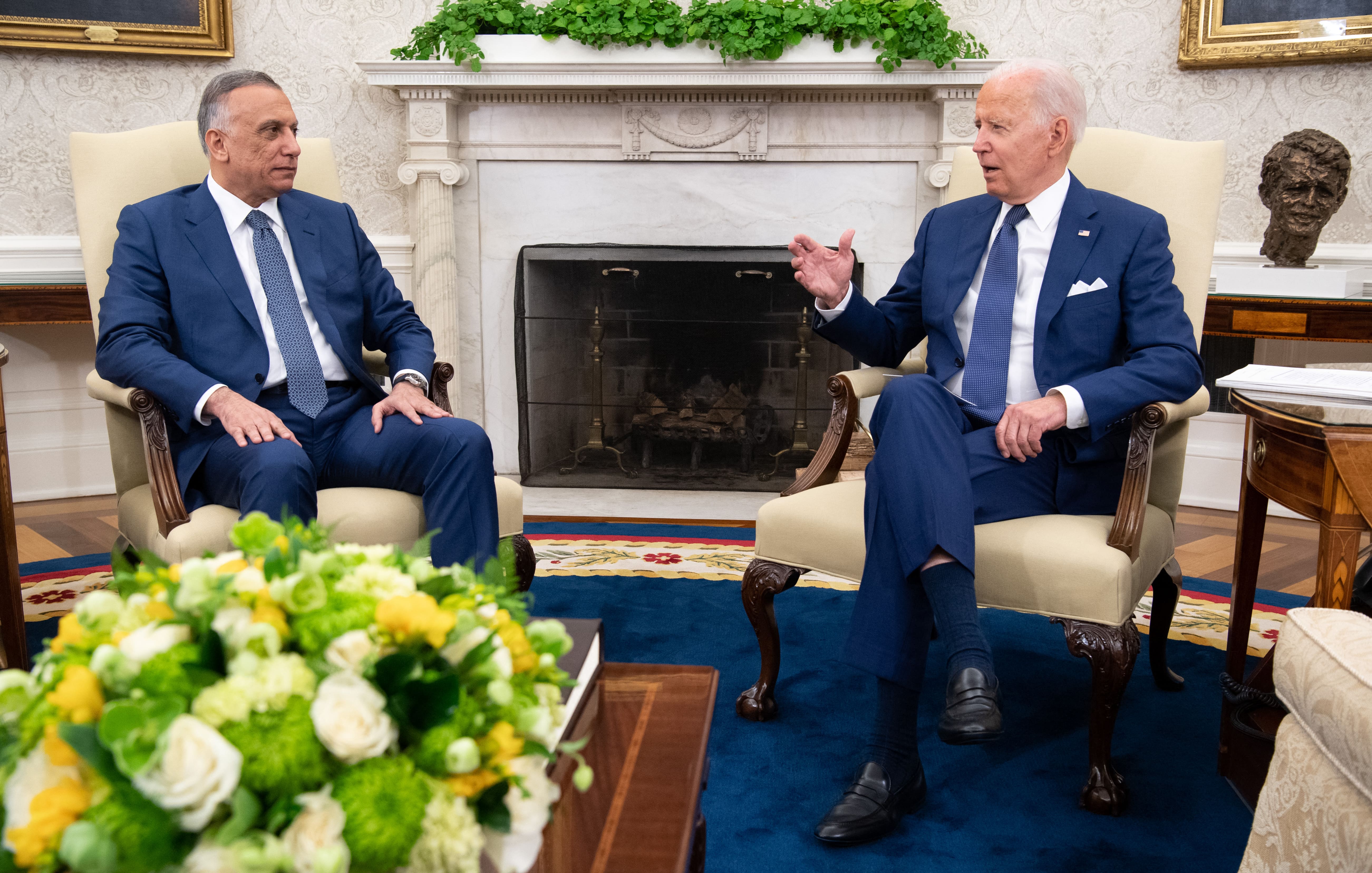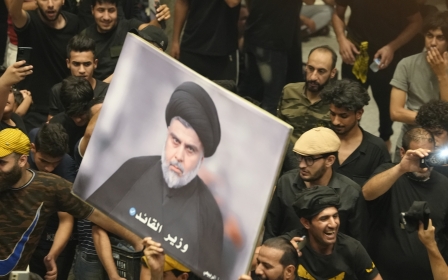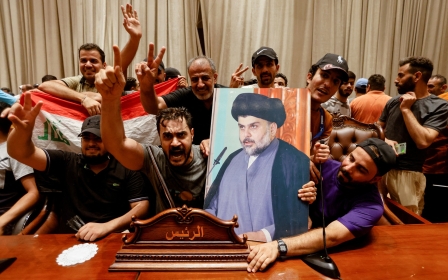As Iraq's political crisis deepens, US influence dwindles
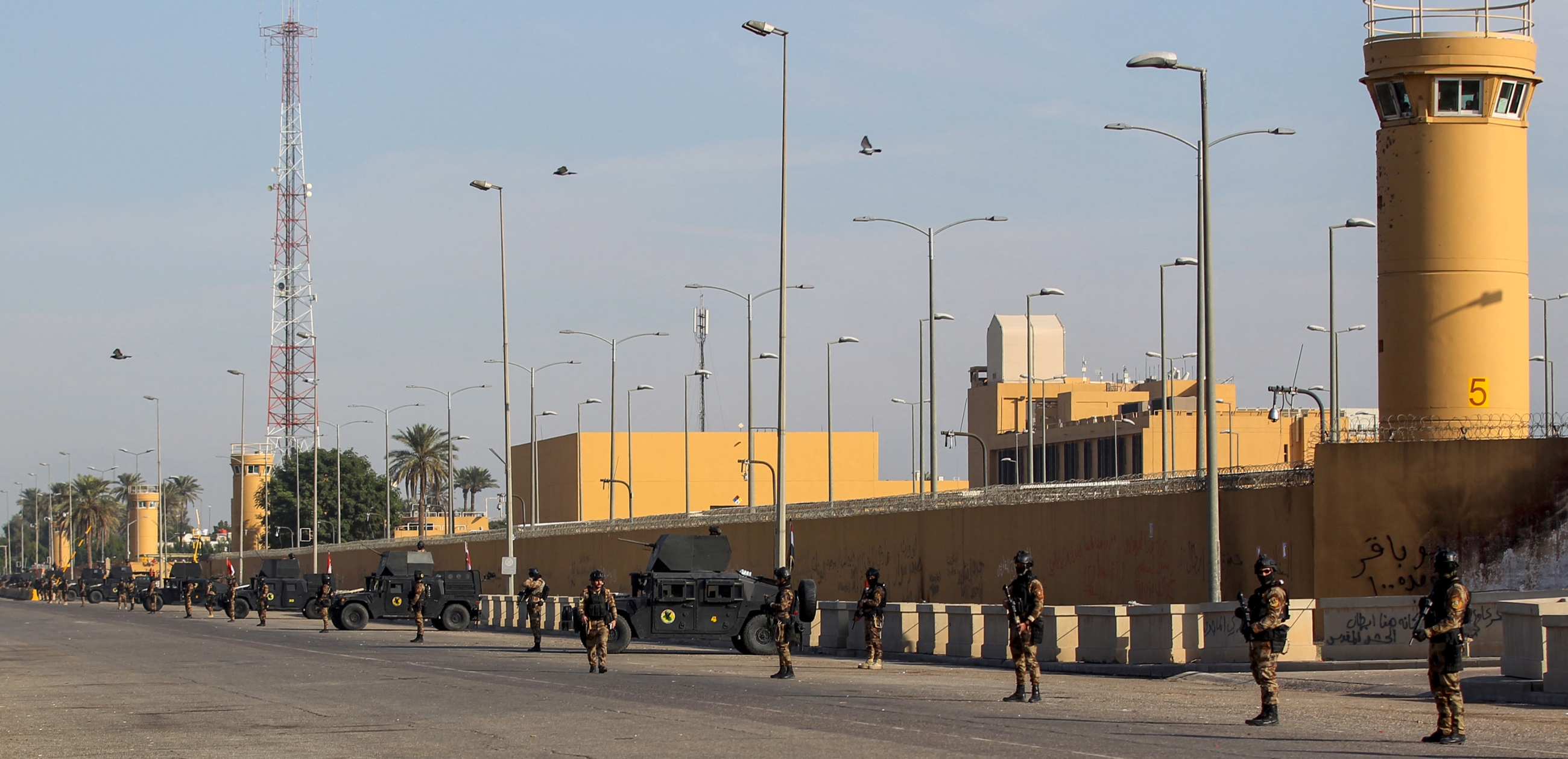
Two days after protesters stormed the Iraqi parliament in July, a group named Ashab al-Kahf, or Companions of the Cave, released a threatening statement about the true source of Iraq's political implosion.
"The US embassy and British embassy and other Nato countries" had fomented unrest between Iraq's Shia, the group said on 1 August, and "all of their embassies and bases [would] be targeted" in return.
The statement from the Iran-backed militia underscored many of the factors at play in Iraq, where the country's main Shia blocs are locked in a bitter power struggle after the collapse of 10 months of talks aimed at forming a government.
'The US saw the elections as a relatively good sign that Iraq was moving towards institutional politics that are more stable'
Former US Ambassador to Iraq, Douglas Silliman
The standoff pits influential Shia cleric Muqtada al-Sadr, who emerged as the biggest winner in Iraq's October elections, against a coalition of Iran-backed Shia parties that have frustrated the cleric's attempts to cobble together a government.
The crisis escalated in June after Sadr withdrew his bloc of MPs from parliament and told his supporters to storm Iraq's green zone, the country's cloistered centre of power.
New MEE newsletter: Jerusalem Dispatch
Sign up to get the latest insights and analysis on Israel-Palestine, alongside Turkey Unpacked and other MEE newsletters
For more than two weeks, thousands of Sadrists have been camped outside parliament as their mercurial leader calls for a total overhaul of the country's political system, new elections and potentially a new constitution.
While the Iranian militia claims the US is behind the chaos, analysts and former US officials say that, far from demonstrating Washington's ability to drive events in Iraq, the unfolding crisis marks the US' dwindling power, and interest, in the country.
"The US has relatively little to do with what's going on in Iraq, and has few ways to influence it in a positive or negative way," Douglas Silliman, president of the Arab Gulf States Institute in Washington, DC and a former US ambassador to Iraq, told Middle East Eye.
'Absent engagement'
Washington is certainly less visible in Iraq today than it has been in decades. While 2,500 US troops remain in Iraq, late last year the Pentagon's combat mission to defeat the Islamic State group transitioned to an "advise and assist" role in support of the Iraqi army. This lower profile has extended beyond the military realm.
Iraq has hosted just two senior US government visits in the months since the country's October election. Meanwhile, the sprawling US embassy has been operating with a skeleton crew since 2019, when the US ordered all "non-emergency" staff to leave Iraq amid security threats.
"US engagement in Iraq's political process has been almost completely absent," Jonathan Lord, a former Iraq country director at the Department of Defense, now head of the Middle East security programme at CNAS, a Washington think tank, told MEE.
Some consider the past ten months a missed opportunity for the US. Washington apprehensively welcomed what was generally seen as a peaceful election, albeit one plagued by record low turnout, where big political parties backed by armed militias demonstrated their staying power.
But there were some signs of progress. The US had supported changes to a law making it easier for independent and reformist candidates to be elected. The move was a response to the Tishreen protests that swept Iraq in 2019.
Some independent candidates were voted in, however, Sadr made the biggest gains under the new system.
Still, "the result of the election was pretty pleasing to Washington", Silliman said. "The US saw the elections as a relatively good sign that Iraq was moving towards institutional politics that are more stable, and produce more moderate governments."
There is little love between the US and Sadr, an Iran-educated cleric who led an armed resistance movement against the US occupation. But in recent years, Sadr has billed himself as an Iraqi nationalist. Some in Washington view him as a potential hedge against Tehran, despite concerns about his thirst for power and aims for a religous government styled along the lines of Iran's own theocracy.
"The US sees Sadr as a volatile nationalist with a huge base. He is viewed as someone who needs to be steered in a direction beneficial to the US, and that is what the US has tried to do, and will continue to do," Lahib Higel, senior Iraq analyst at International Crisis Group, told MEE.
The US has limited scope for dialogue with Sadr. While Sadrists in the Iraqi government do engage with Western officials, they refuse to speak directly to the US. Communication is left to intermediaries.
Following the October election, Washington's main political effort in Iraq revolved around trying to broker talks between Kurdish KDP and KUP parties to agree on a consensus candidate for president, analysts and former US officials say.
'How much do we celebrate a government in which the main successes come when they go to conferences abroad, while the country is falling apart?'
- Renad Mansour, Chatham House
Iraq operates under a sectarian power-sharing system imposed after the US occupation. The president of Iraq is always a Kurd, the prime minister an Arab Shia, and the president of the parliament an Arab Sunni.
"The US' stated position after the elections was that it was neutral, but to some a preferred route was the tripartite alliance between the KDP, the Sunnis and the Sadrists to slowly push out Iran aligned groups," Renad Mansour, Iraq initiative director at Chatham House, told MEE.
But Iraq was not a top priority for the Biden administration last autumn. The October elections came as Washington dealt with the fallout of its chaotic withdrawal from Afghanistan. The US was also deep into negotiations with Iran about re-entering the 2015 nuclear deal. The US was likely unwilling to put forth the level of engagement needed to bring the Iraqi groups together.
"The reason we haven't seen much talk of the US in Iraq's political process is simply because they don't have much of a role, and they haven't wanted to," Higel said.
After the US-led invasion that toppled Saddam Hussein in 2003, Iraq descended into civil war. The Islamic State group then conquered vast swathes of the country. The economy has also stalled.
About 90 percent of Iraq's government revenue comes from oil sales. Private sector growth is anaemic. Rampant corruption means ordinary Iraqis have seen little relief from rising crude prices, while food and other living costs have increased, exacerbated in part by Russia's invasion of Ukraine.
At the same time, the country is in the middle of an historic drought. And compounding the domestic challenges is the proliferation of Iran-backed militias.
The dire situation means Iraq's series of weak governments, cobbled together as compromises between the country's bickering factions, have looked abroad for success.
Prime Minister Mustafa Kadhimi has led efforts to mediate between Iran and Saudi Arabia. He has also spearheaded deeper integration with Jordan and Egypt. Ahead of his trip to the region, US President Joe Biden lauded Baghdad as a “platform for diplomacy".
But some say the focus on diplomatic forays abroad has only made the government appear more oblivious and unresponsive to the needs of average Iraqis, such as those blockading parliament.
"How much do we celebrate a government in which the main successes come when they go to conferences abroad, while the country is falling apart?" said Mansour from Chatham House.
Meanwhile, Iraq's political crisis drags on, and the US embassy in Baghdad remains eerily empty.
Middle East Eye delivers independent and unrivalled coverage and analysis of the Middle East, North Africa and beyond. To learn more about republishing this content and the associated fees, please fill out this form. More about MEE can be found here.


